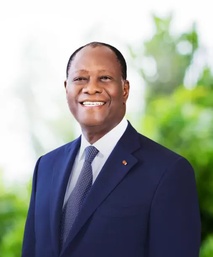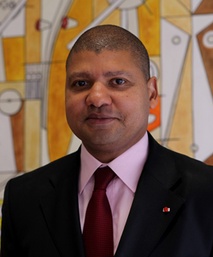2025 - 2025 Côte d'Ivoire Presidential Elections (Ivory Coast)
Overview
Côte d’Ivoire will hold its presidential election on 25 October 2025. The vote
is tightly contested not just over policy but over politics: the exclusion of
leading opposition figures, the bid by President Alassane Ouattara for a fourth
term, and memories of the violent, post-electoral crises of the past make this
one of the most consequential votes in West Africa this year.
Political context
Ivory Coast is the West Africa’s economic powerhouse and a
major cocoa producer. Since the post-electoral crisis of 2010–2011, which left
thousands dead and deeply polarised the country, elections in Abidjan have been
treated as potential flashpoints: disputed results in 2010 led to a civil
conflict and international intervention.
President Alassane Ouattara’s decision to run again after a
2016 constitutional reform has been controversial: critics say it undermines
constitutional limits and democratic rotation; supporters argue it is legally
permissible and offers continuity. Ouattara’s candidacy, combined with the
exclusion of several high-profile opponents, has intensified concerns about the
inclusiveness and competitiveness of the process.
Candidates
The final candidate list published by the Constitutional
Council reduced a far larger provisional field to a handful of approved names.
Among the notable outcomes:
Alassane Ouattara (incumbent) — confirmed as a candidate and
seeking a fourth term.
Several previously prominent figures, including Tidjane
Thiam (former Credit Suisse CEO and a leading opposition figure) and
ex-President Laurent Gbagbo, have been struck from the electoral roll or
disqualified on legal grounds (primarily nationality and prior convictions), a
move that opposition parties and some civil society actors have denounced as
politically motivated.
These exclusions matter because they reshape the contest’s
competitiveness and the perceived legitimacy of any outcome.
Key issues shaping voter choice
Economy & livelihoods: Growth, job creation (especially
for youth), and the price and supply chains of cocoa and cashew sectors remain
central.
Public services and infrastructure: Urban management in
Abidjan, electricity and transport reliability are tangible issues for voters.
Security and reconciliation: Given recent history, voters
are attentive to promises on national unity, reintegration of former
combatants, and prevention of violence.
Rule of law and governance: Issues of judicial independence,
corruption, and civil liberties are focal points after a series of
disqualifications and arrests that critics call politically selective.
Important Timelines
10–23 October 2025 (14 days) – Official campaign period
25 October 2025 — Presidential election day (first round).
29 November 2025 – Second round (if no candidate obtains
absolute majority in the first round)
Voting and Results Management
Voting will be done with paper ballots after which counting of ballots will happen at each bureau. Results will be immediately posted via secure transmission to the Independent Electoral Commission (CEI). Final proclamation of the winner is made by the Constitutional Council after consolidation of results and any legal challenges.
Results Summary
| Photo | Candidate | Political Party | Total Votes |
|---|---|---|---|

|
Alassane Ouattara |
Rassemblement des Houphouëtistes pour la Démocratie et la Paix
|
-- |

|
Jean-Louis Billon |
Congrès Démocratique (CODE)
|
-- |

 Take Voters' Compass
Take Voters' Compass